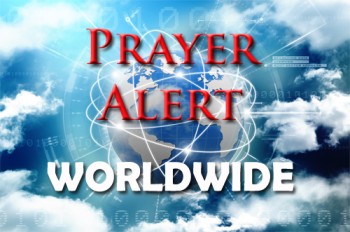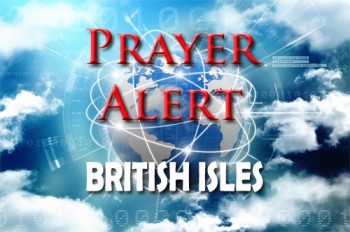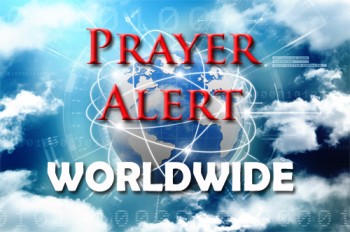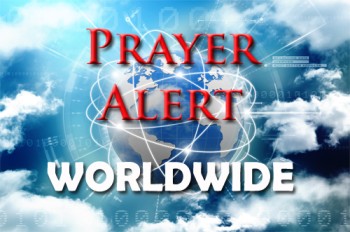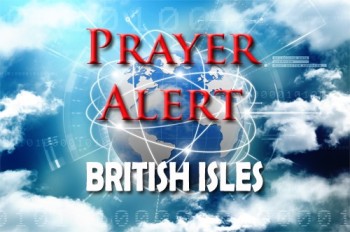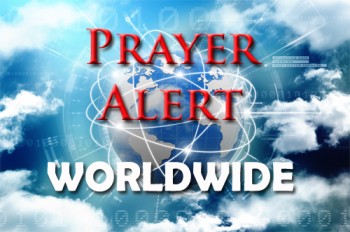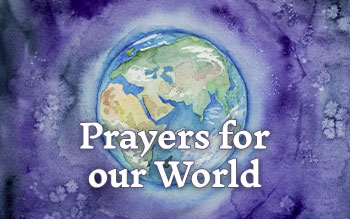Displaying items by tag: emergency
Morocco: response to severe winter emergency
Authorities in Morocco are confronting a severe winter emergency as freezing temperatures, heavy rainfall, snowfall, and flash floods impact large swathes of the country. In response, they have launched a nationwide relief operation covering 28 provinces, aiming to assist around 73,000 vulnerable households with food supplies, blankets, and essential aid. Red weather alerts warn of as much as 80 cm of snow in the High Atlas mountains, while orange alerts signal intense rainfall across central and northern regions. The extreme conditions have already proved deadly: flash floods in the coastal city of Safi killed at least 37 people, damaged homes, and swept away vehicles. To mitigate further harm, the government has mobilised road clearance teams, emergency monitoring centres, and provincial vigilance committees to maintain access to remote and high-altitude areas: residents are being urged to remina cautious, especially when travelling. The relief efforts reflect Morocco’s broader strategy to protect vulnerable communities and mitigate the impacts of what authorities describe as unusually severe winter weather.
Treat eating disorders as an emergency, say MPs
The parliamentary group on eating disorders has declared an emergency, citing 'woefully inadequate care' for those affected. Conditions like anorexia and bulimia have surged in recent years, with 12% of 17- to 19-year-olds and nearly 21% of young women now affected, according to a 2023 survey. The report highlights widespread barriers to treatment, underfunded services, and misconceptions about eating disorders, which affect people of all ages, genders, and ethnicities. It calls for a national strategy to support patients and families, mandatory training for frontline workers, and significant investment in care. Testimonies from sufferers reveal how delays in diagnosis and treatment caused prolonged suffering. Campaigners warn some patients are discharged too early, while families feel abandoned by the system. The NHS has pledged funding and expanded services, yet MPs like Richard Quigley argue that the system is 'beyond broken’. Immediate reforms, including earlier interventions and increased resources, are critical to saving lives and easing pressure on families.
DRC: WHO declares public health emergency as mpox spreads
The World Health Organisation (WHO) has declared a Public Health Emergency of International Concern (PHEIC) due to a new variant of the mpox viral disease spreading across thirteen African countries, following an outbreak in the Democratic Republic of Congo (DRC). The variant, known as clade Ib, is more easily transmissible and has led to over 17,000 suspected cases and 517 deaths in Africa this year, marking a 160% increase from the previous year. WHO’s director-general emphasised the global threat, committing to coordinated efforts to prevent transmission and save lives. The PHEIC declaration facilitates accelerated research, funding, and international cooperation. Africa’s top public health body has also declared an mpox emergency, working with the EU and vaccine manufacturers to secure an initial 215,000 vaccine doses, with plans for up to ten million by 2025. Efforts include extensive media outreach to raise awareness, particularly using social media to target the young, who constitute 60% of the cases in the DRC.
Asia: severe heatwave
The worst April heatwave in Asian history is causing deaths and forcing schools to close. Temperatures of over 40C in Bangladesh have caused road surfaces to melt, and if the heat does not abate the ministry of environment will declare a temperature emergency. Six cities in India recorded temperatures above 44C. India has become particularly vulnerable to extreme heat recently; experts fear 2023 could be even worse. As temperatures and humidity soar, causing an orange severe heatwave warning, rural workers and labourers are forced to work outside. Weekend thunderstorms could abate conditions, but extreme heat is projected to continue into next week. Thailand has issued heatstroke health warnings and the high temperatures could continue beyond the usual summer months, causing drought and crop failure. China reported record-breaking temperatures for April in many locations, and over a dozen countries are experiencing similar problems. The death toll is expected to rise. Pray for the frail and elderly to drink enough fluids, including in the UK as meteorologists forecast an even hotter summer for us than in 2022.
Energy: significant risk of winter gas shortages
Ofgem has said that the UK is facing ‘a significant risk’ of gas shortages this winter due to Russia's war with Ukraine. It could possibly enter a ‘gas supply emergency’, leading to supplies being cut to the power stations using gas to generate electricity. This would place firms at risk of running out of money because of huge charges they must pay if they cannot deliver electricity. SSE,which operates four gas-fired power stations in the UK, is concerned that gas-fired power stations face millions of pounds worth of penalties ‘caused by events outside their control’.
Yemen and Syria: updates
Yemen, currently home to the world’s worst humanitarian crisis, has millions of people extremely vulnerable to coronavirus. Even before the pandemic, 80% of Yemen’s population needed aid. The spread of coronavirus is difficult to track with very little testing. Sometimes the only way to assess the severity of an outbreak is by how busy the gravediggers are. In parts of Yemen gravediggers are overwhelmed. Coronavirus has caused a reduction in funding for aid programmes. The UN has been forced to close nutrition, hygiene and sanitation programmes (see). Doctors in Syria are preparing for ‘an explosion’ of coronavirus in large overcrowded settlements. Only 64% of hospitals are functioning due to shortages of trained staff. 70% of health workers have fled Syria. Awareness of coronavirus danger is extremely low in some areas, so food and medicine are prioritised for people in poverty, not soap and hygiene. See
Coronavirus declared global health emergency by WHO
The new coronavirus has been declared a global emergency by the World Health Organization, as the outbreak continues to spread outside China.
"The main reason for this declaration is not what is happening in China but what is happening in other countries," said WHO chief Tedros Adhanom Ghebreyesus.
The concern is that it could spread to countries with weaker health systems. The death toll now stands at 170 people in China. The WHO said there had been 98 cases in 18 countries outside of the country, but no deaths.
Most cases have emerged in people who have travelled from the Chinese city of Wuhan, where the outbreak began. However, there have been eight cases of human-to-human infection - in Germany, Japan, Vietnam and the United States.
Dr Tedros, speaking at the press conference in Geneva, described the virus as an "unprecedented outbreak" that has been met with an "unprecedented response". He praised the "extraordinary measures" Chinese authorities had taken to prevent it from spreading. "Let me be clear, this declaration is not a vote of no confidence in China," he added. He also said that there is no reason to limit international trade or travel to China.
Various countries have taken steps to close borders or cancel flights in recent days.
Coronavirus outbreak
Data based on the first 425 cases confirmed in Wuhan:
59 was the average age of those infected
89% were not hospitalised until at least five days of illness
56% of the cases were men
55% of cases diagnosed before 1 January linked to seafood market
Data Source: The New England Journal of Medicine
More info and analysis: https://www.bbc.com/news/world-51318246
Pray: for those affected by this as-yet not fully understood strain of the Coronavirus.
Pray: that the spread of the virus will be contained.
Pray: for wisdom and insight for the medical researchers who are seeking both to build their understanding of the virus and the way that it mutates and to identify an effective inoculation and treatment.
Bangladesh: Myanmar children need psychological support
‘Children are visibly traumatised and distressed, and many have stopped speaking,’ said a Save the Children team member in Bangladesh. Displaced children arriving there are exhibiting signs of trauma such as nightmares and loss of speech after witnessing horrific violence, and are in urgent need of psychological and emotional support. As well as providing food, water and shelter to more than half a million, charities have identified psychological and emotional support services as a critical need. Most of those arriving from Myanmar are women and girls: some have been raped and sexually abused. Hundreds of children are separated from their families, and report having witnessed violence first hand. Their enormous psychosocial needs are obvious to anyone walking through the camps and makeshift settlements.
